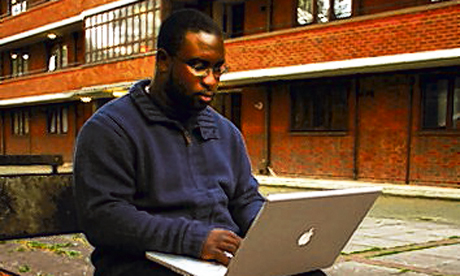Hackney residents stuck on wrong side of digital divide

A third of estate families do not have access to broadband. Photo: Hackney Citizen
Many local residents are still on the wrong side of Hackney’s ‘digital divide’, the council has been told.
The digitising of public services such as benefits and driving licence applications typifies the inexorable drive online. And with 90 per cent of new jobs now requiring computer skills, the estimated 25 per cent of Hackney households not using the internet are increasingly disconnected.
A 2007 report by UK Online pointed to three key barriers to ‘digital inclusion’: access, motivation and skills and confidence. At a meeting of the council’s social inclusion commission, Chris Peacock, the council’s Assistant Director for ICT, described access and connectivity as a cost issue for many residents. Following this, she said that language issues, and ‘demystifying the internet’ were further key factors which needed tackling.
Much is already being done. Hackney’s libraries will soon provide access to over 200 PCs, and they currently offer training courses in computer skills. At a meeting of the council’s social inclusion commission last week, Geoff Carter, Head of ICT at the Learning Trust, detailed schools’ participation in the Home Access and Computers for Pupils schemes. Both are aimed at tackling digital exclusion by working with families and school facilities, and have enjoyed ‘excellent’ take-up rates.
Furthermore, council data on access to its website also noted a 15 per cent increase in absolute unique visitors in 2010. This does not, however, equate to a narrowing of the digital divide.
The commission’s discussion of an open-access Wi-Fi network was mooted, following suggestions such a service would largely be used by those already connected. Regarding network solutions, Peacock said Hackney could learn from other councils’ strategies. Next door in Islington, the council has rolled out free internet access on council estates.
Despite this, there will inevitably be issues of exclusion particular to the make-up of Hackney’s population. The Haredi Jewish community’s cultural aversions to computer use were singled out as an example of the limitations of implementing a vision of universal technological adaptation.
The Commission’s review is likely to continue until September, when considerations will be put before the full council.
